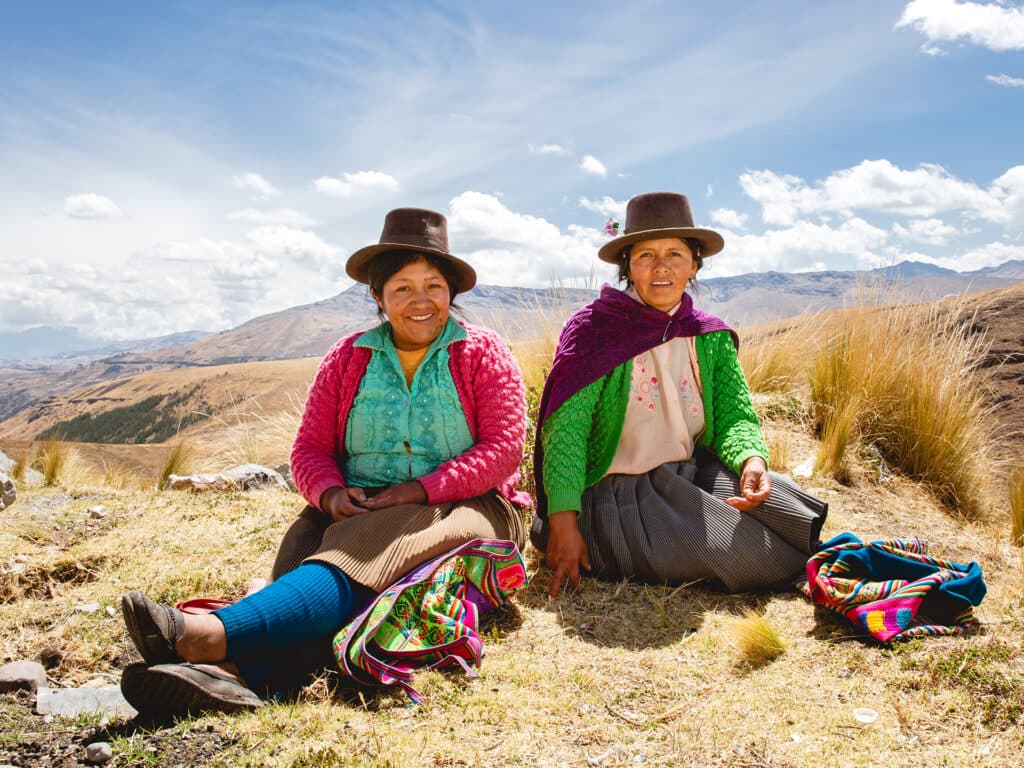
Peru
Peru has a wealth of natural resources and relatively strong and stable economic growth. It is considered a middle-income country, but the distribution of assets is extremely uneven, and the social and economic gaps have widened in recent years.
Diakonia works in Peru with a territorial strategic approach, collaborating with civil society organizations in the Andean, coastal, and Amazonian regions. We act in contexts marked by violence, social exclusion, socio-environmental conflicts, illegal economies, and setbacks in human rights, promoting resilience and social cohesion based on human rights and gender justice principles.
Peru faces deep structural inequalities, with economic disparities, racism, classism, and centralism. Trust in institutions is weakened, the rights of women and LGBTQ+ communities are regressing, and environmental defenders face growing violence. Additionally, food insecurity, the water crisis, and contamination from toxic metals affect millions of people, while a conservative wave perpetuates social and economic exclusion.
Diakonia strengthens the role of social organizations as agents of change, promoting:
- Territorial management, agroecology, and ecosystem restoration.
- Community leadership, environmental monitoring, and actions against pollution.
- Gender equality and the integration of youth in economic and social initiatives.
- Defense of rights in alliance with feminist, religious, and LGBTQ+ organizations.
- Promotion of responsible businesses and human rights literacy.
- Convergence spaces to counter setbacks and reinforce democracy.

"We have to adapt"
The situation for farmers in the mountains in Peru has been made more difficult. The glaciers in the area are melting and they are running out of water. Climate change has forced them to adapt and look for new, intelligent solutions.
“Everything is more uncertain now, but we’re finding new ways of working,” says Eugenio Callahua.

An oasis against prejudice
“People need to understand that biology is not a question of destiny,” says one of the young people, who is a trans woman. “When people say I was born in the wrong body, I think they’re wrong. I wasn’t born in the wrong body – it’s my body and a body can never be wrong.”
A unique course held by Diakonia’s partner organization provides young people with a forum where they can fully be themselves.

Mothers won the battle
“When the water runs out, we are forced to use river water. We boil it and add chlorine, but the children still get diarrhoea and a rash on their faces,” says Cristina Liduvina Rupire Garibay from the village of Casablanca.
She and other mothers got tired of their children always being ill and, with the help of Diakonia, started circular farming. And now there are no children with anaemia in Casablanca any more.

”Water is the most beautiful thing there is”
Over the past 10 years the tropical glaciers in Peru have melted at frightening speed due to the greenhouse effect.
”We don’t know what can happen. Much has changed in a short time. I remember when I was a kid, we didn’t have these problems,” says Wilber, living in one of the villages by the glaciers.


